|
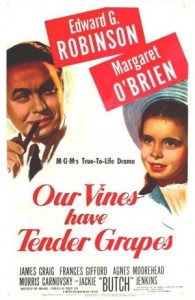
Synopsis:
A Norwegian-American farmer (Edward G. Robinson) and his wife (Agnes Moorehead) raise a curious and compassionate daughter (Margaret O’Brien) in rural Wisconsin; meanwhile, Robinson longs to follow in the footsteps of his neighbor (Morris Carnovsky) and build himself a fancy new barn, much to his wife’s consternation.
|
|
Genres, Themes, Actors, and Directors:
- Agnes Moorehead Films
- Edward G. Robinson Films
- Farming
- Father and Child
- Frank Morgan Films
- Margaret O’Brien Films
- Small Town America
Review:
Just before being blacklisted by HUAC, Dalton Trumbo scripted this lyrical, often hard-hitting look at life for a Norwegian-American farming family in Wisconsin (based on a novel by George Victor Martin). Its most striking characteristic may be the casting of Robinson in the lead role as a gentle Scandinavian (!) father, rather than the “tough-guy” roles he was usually offered; by his side is Agnes Moorehead, who comes across as much less shrewish than usual in an equally atypical role as his supportive yet concerned wife. The episodic storyline attempts to show both the joys and the more challenging aspects of rural life in a small American town — the latter most clearly epitomized by the collective judgment towards a mentally challenged young woman (Dorothy Morris) whose tyrannical father (Charles Middleton) refuses to allow her to go to school. Meanwhile, the cruelly fickle hardships of a farming existence are highlighted in a devastating scene involving a burning barn — a sequence cited by many as simultaneously too difficult to (re)watch and instantly unforgettable.
Robinson’s loving relationship with O’Brien — and O’Brien’s tenuous friendship with a neighbor boy (Jackie ‘Butch’ Jenkins) — provide a pleasant counterpart to the film’s more challenging elements, with one of the most joyous vignettes occurring when Moorehead informs Robinson that a circus is stopping by overnight, and convinces him to take O’Brien for a behind-the-scenes late-night visit. Unfortunately, the entire narrative is framed by a yawn-worthy subplot involving a reporter (James Craig) who falls for the town’s new schoolteacher (Frances Gifford), and tries to convince her to forsake city living for a small-town existence; their Hollywood-ized relationship is eerily reminiscent of that between Craig and Marsha Hunt in Clarence Brown’s The Human Comedy (1943) — and equally unsatisfying. Nonetheless, I’m recommending Our Vines… to FFs for one-time viewing, simply for its fine lead performances and for several unforgettably powerful moments.
Redeeming Qualities and Moments:
- Edward G. Robinson as Martinius
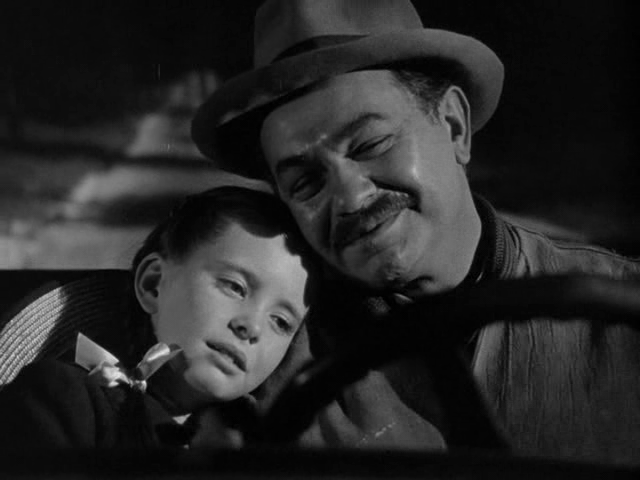
- Agnes Moorehead as Bruna
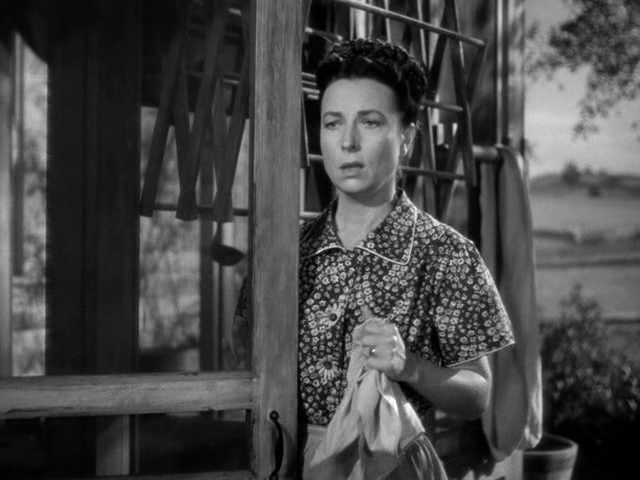
- Many heartwarming — and heartbreaking — scenes
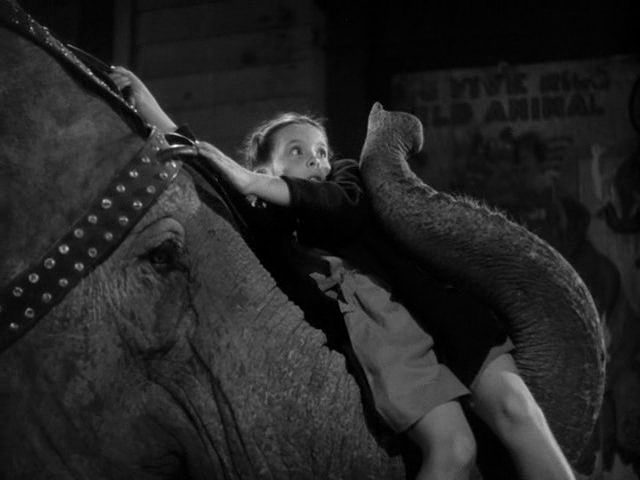
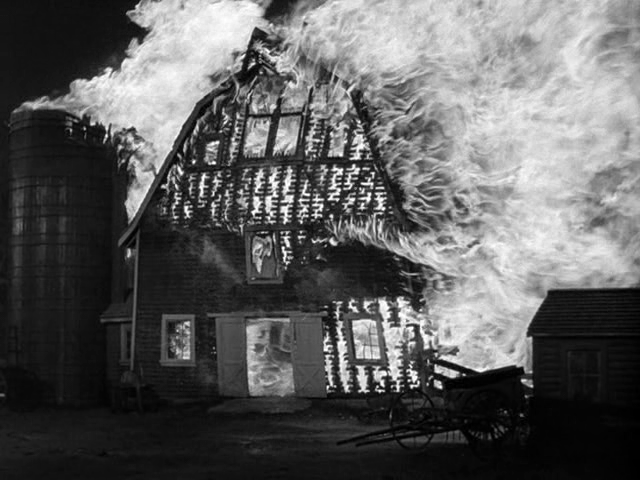
Must See?
Yes, simply for Robinson and Moorehead’s fine performances. Listed as a Personal Recommendation in the back of Peary’s book.
Categories
- Noteworthy Performance(s)
Links:
|





One thought on “Our Vines Have Tender Grapes (1945)”
Not a must.
First of all, Margaret O’Brien is in it. In real life she may be a delightful person (I’m assuming she’s still alive) – that’s irrelevant. Apparently she was quite popular as a child star – but her acting is among the most cloying, annoying, manipulative, unnatural and one-note acting that can be seen on-screen. Personally, I find it unbearable since it simply reads as false. (However, her child co-star Jenkins does, in fact, act like a real kid!)
It is, of course, interesting to see both Robinson and Moorehead in roles unlike what they’re mainly known for – but the roles are not so interesting that they merit particular attention.
The film is meant to be heartwarming but, to me, it just sits there. I will add that, although I have seen this film before, I got halfway through a rewatch and just couldn’t continue. I was bored out of my mind. Maybe something interesting or (hopefully) compelling occurs in the latter part of the film (I don’t recall) but I can’t recommend a film that has a first half as wildly forgettable as this one.